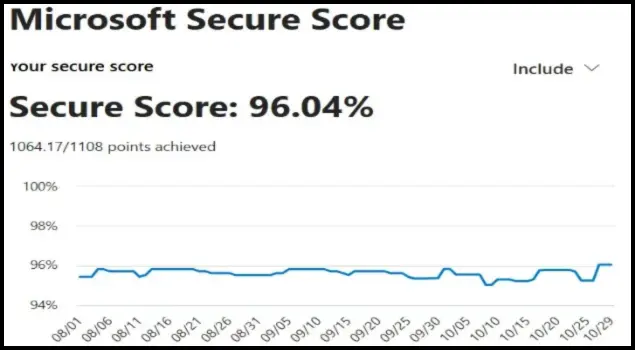15
+
YEARS OF
EXPERIENCE
1000
+
SUCCESSFUL
Projects
80
+
Satisfied
Clients

In today’s technology-driven business environment, relying on a Managed Service Provider (MSP) is essential for maintaining IT infrastructure, ensuring cybersecurity, and supporting business continuity. However, not all MSPs deliver the same level of service, and even reliable providers may face challenges that impact performance over time. Understanding how to assess your existing MSP is crucial for organizations that want to ensure they are receiving optimal support, value, and strategic guidance from their IT partner.
Evaluating Service Performance
The first step in understanding how to assess your existing MSP is reviewing the overall quality of their service delivery. This includes evaluating responsiveness to support requests, resolution times for incidents, and the effectiveness of proactive monitoring and maintenance. A high-performing MSP should not only address issues quickly but also prevent recurring problems through proactive management and system optimization.
Monitoring service level agreements (SLAs) is essential. Assess whether your MSP consistently meets or exceeds the agreed-upon metrics for uptime, response time, and problem resolution. If the provider falls short, it may indicate gaps in capacity, expertise, or management processes that could affect your organization’s operations.





Assessing Technical Expertise and Innovation
Another important aspect is the technical competence of your MSP. Organizations should evaluate whether the provider has the knowledge, skills, and certifications required to support current technologies and emerging trends. This includes cloud solutions, network management, cybersecurity, endpoint management, and compliance requirements.
A strong MSP demonstrates continuous innovation, offering recommendations to improve IT infrastructure, optimize performance, and adopt new technologies. If your existing MSP is reactive rather than forward-looking, it may be time to reassess whether they can meet your organization’s evolving IT needs.
Reviewing Security Measures and Compliance
Security is a critical component of any MSP relationship. When assessing your provider, consider the security measures they have implemented to protect your organization’s data, systems, and networks. Evaluate their approach to threat detection, incident response, firewall management, antivirus deployment, and data backup.
Additionally, confirm that your MSP ensures compliance with relevant regulations and industry standards, such as GDPR, HIPAA, ISO 27001, or PCI DSS. If your MSP’s security practices or compliance monitoring are lacking, your organization could be exposed to risk, financial penalties, or reputational damage.
MSP Overview
Our modern approach to technology and strict security measures, Proxar is a leading Managed Service Provider in the UK with clients mostly around LondonWhat are the benefits of working with MSP?
Discover the key benefits of partnering with a Managed Service Provider, from cost savings to expert IT management.Managed Service Provider Checklist
Use our comprehensive MSP checklist to identify essential features, evaluate providers, and choose the right IT partner.
Evaluating Communication and Reporting
Effective communication is key to a successful MSP partnership. Assess how your provider communicates about system performance, incidents, updates, and strategic recommendations. Regular, transparent reporting allows you to understand the health of your IT environment, track performance metrics, and make informed business decisions.
An MSP that provides detailed, timely reports and strategic insights demonstrates accountability and commitment to your organization’s success. Lack of clear communication may indicate misalignment, which can hinder IT efficiency and business outcomes.
Measuring Alignment with Business Goals
A critical aspect of how to assess your existing MSP is evaluating how well they align with your organization’s goals and priorities. Your MSP should not only manage technology but also support your strategic objectives, whether that involves digital transformation, remote work enablement, or scalable IT infrastructure.
Consider whether the provider offers guidance on optimizing processes, adopting new technologies, or planning for future growth. MSPs that act as strategic partners rather than purely operational vendors add significant value by helping your organization leverage IT as a competitive advantage.
Considering Cost and Value
While cost is not the only factor, assessing the value you receive from your MSP is important. Evaluate whether the pricing model aligns with the level of service, expertise, and support provided. Consider hidden costs, contract flexibility, and the scalability of services as your organization grows. A provider that delivers strong performance, security, and strategic guidance offers long-term value beyond mere cost savings.
Conclusion: Ensuring a High-Performing MSP Partnership
Understanding how to assess your existing MSP is essential for maintaining a secure, reliable, and efficient IT environment. By evaluating service performance, technical expertise, security practices, communication, strategic alignment, and cost-effectiveness, organizations can determine whether their MSP is meeting expectations and contributing to business success.
A thorough assessment ensures that your IT partner not only supports day-to-day operations but also acts as a strategic advisor, helping your organization adapt to evolving technology, optimize processes, and achieve long-term growth. Regular MSP evaluations empower businesses to make informed decisions, maintain a resilient IT infrastructure, and maximize the value of their managed services partnership.

answer time
satisfaction
score
on initial call
same business
day









